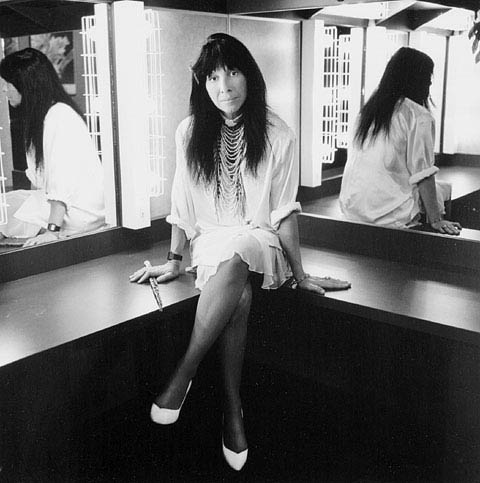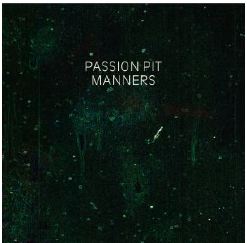
How many songs have been written about the Native American Genocide?
Hardly any. And why is that? Music has been the means for thrusting important issues into the social consciousness ever since Stephen Foster wrote "Hard Times Come Again No More" in 1855. In fact, a strong sociopolitical narrative is often considered the definitive trait of American songwriting. So why hasn't anyone ever sung of the 500-year-old war known as the American Indian Holocaust?
Actually, someone has. Her name is Buffy Sainte-Marie.
The 68-year-old singer/songwriter/musician/composer/educator/activist has released twenty-two albums since her debut in 1964 and shows no signs of slowing down. Her voice – she has a skillful, chilling vibrato and a howl that curls tight and spreads wide - is an instrument in and of itself.
Often portrayed as a flower child of the sixties, Buffy's message extends far beyond the pacifist sentiments expressed in her most well known song, "Universal Soldier", which was made famous by Donovan. She explored drug addiction on "Co'dine" (later covered by Janis Joplin) and sexual abuse on "The Incest Song". While she examines explosive topics with sharp insight and wisdom, her main focus has always been the Native American - particularly the Native American woman - struggling to overcome the "blue, white, and scarlet hypocrisy."
Her first album, It's My Way!, received rave reviews from the New York Times but failed establish her as a household name. On its opening track, "Now That The Buffalo's Gone", Ms. Sainte-Marie sings, "When Germany fell to your hands / You left them their pride and you left them their land / And what have you done to these ones?" Did she ever credit her lack of popularity to her radicalism? Did she ever try to censor her subject matter? No way! In fact, quite the opposite occurred. Her next album featured a song called "My Country 'Tis Of Thy People You're Dying" - a seven-minute attack on the foundation of this country.
No wonder Buffy Sainte-Marie was blacklisted by Lyndon B. Johnson in the 1970s. The government fought to suppress her scathing, topical music. "Everything changed when Lyndon Johnson started censoring artists of whom he disapproved. By the middle sixties, music business interests had gotten control of the scene. Coffee houses which had started out as free speech platforms of student opinion found themselves hassled and in tax trouble. The coffee houses that survived did so by reopening with liquor licenses. Alcohol is a different scene from coffee; so is the music, so are the words, and so is the crowd," Ms. Sainte-Marie has said.
While blacklisted and banned from radio, Sainte-Marie joined the cast of Sesame Street. She would be a regular on the show from 1976 - 1981, often appearing with her young son, Dakota. She used the show to introduce children to aspects of Native American life that she felt were misrepresented by existing educational materials. In one groundbreaking episode, Ms. Sainte-Marie breastfed her son in front of Big Bird."[There was] no titillation factor at all," she has said of the incident. Sainte-Marie's image followed a similar mantra: there was absolutely no titillation factor. Instead she embraced her womanhood as a strength. She stirred controversy baring one of her breasts on the cover of her 1974 album, Buffy, but to this day she maintains that it was a personal decision and not her record label’s ploy to sexualize her image. "Of course, Sears put a pasty on it," said Sainte-Marie in a 2009 interview, "...But I feel as though breasts are personal and sexuality is personal and I have a right to talk about it. There were a lot of people burning bras in those days, and there were a lot of women going topless. I think breasts are beautiful, and I don't like the idea of them being considered smut. ...A couple years later I was breastfeeding on Sesame Street. It's the same attitude."
In tandem with her politics, Sainte-Marie's music never lost its edge. A great innovator, Sainte-Marie was a pioneer of electronic music. In 1966 she began working with synthesizers, and began scoring films, creating some of the earliest electronic soundtracks. She multi-tracked her mouthbow, a unique instrument she had created using a traditional Native American hunting bow and steel guitar strings, for Mick Jagger's first movie in the early 1970s. In 1989, she made the very first digital album to be delivered via the fledgling Internet. This album, Coincidence and Likely Stories, contains her tour-de-force performance, "Bury My Heart At Wounded Knee":
Ms. Sainte-Marie continues pushing boundaries and challenging beliefs on her newest album, 2008’s Running For The Drum. Buffy’s fierce originality coupled with her killer lyrics equates for one hell of an album. She’s never sounded so contemporary: she outdoes M.I.A. with the tribal-funk of “Working for the Government”. Buffy also begins to sing passionately about a new topic – global warming and the environment.
"[When I was blacklisted] I had figured I was just too weird for America, which was becoming very conservative. Powwow rock, mouthbows, passionate vibrato, high-heels, Indians, protest songs, electronic music: too much for some people. …For me, to move from being gagged and thought suspect to speaking out about Indian rights on Sesame Street was perfect. I was being denied an adult audience because I couldn’t get airplay, but I got to speak to kids before they got into stereotyping… and tell them the simple message: Indians exist."
 AJJ play straight up folk-punk: earnest and unplugged yet gritty and raw. Its two core members, Sean Bonnette (guitar / vox) and Ben Gallaty (bass), have worked with a slew of constantly alternating musicians since the band's 2004 inception. Bonnette, who strums his acoustic axe with string-popping intensity, has a knack for writing confessional songs about his love / hate relationship with Parliament cigarettes and his antipathy towards hipsters, as well as the abusive stepdad who fucked up his childhood. He admittedly sounds a lot like the dude from Neutral Milk Hotel - which kinda make sense, considering AJJ released a pitch-perfect cover of "Two-Headed Boy". Sean's songs tightrope-walk the line between personal and political - exploring both intimate and far-reaching topics with intelligence and humor. The Arizona-based band decries Immigration SB 1070 Law on their excellent "Lady Liberty".
AJJ play straight up folk-punk: earnest and unplugged yet gritty and raw. Its two core members, Sean Bonnette (guitar / vox) and Ben Gallaty (bass), have worked with a slew of constantly alternating musicians since the band's 2004 inception. Bonnette, who strums his acoustic axe with string-popping intensity, has a knack for writing confessional songs about his love / hate relationship with Parliament cigarettes and his antipathy towards hipsters, as well as the abusive stepdad who fucked up his childhood. He admittedly sounds a lot like the dude from Neutral Milk Hotel - which kinda make sense, considering AJJ released a pitch-perfect cover of "Two-Headed Boy". Sean's songs tightrope-walk the line between personal and political - exploring both intimate and far-reaching topics with intelligence and humor. The Arizona-based band decries Immigration SB 1070 Law on their excellent "Lady Liberty".








